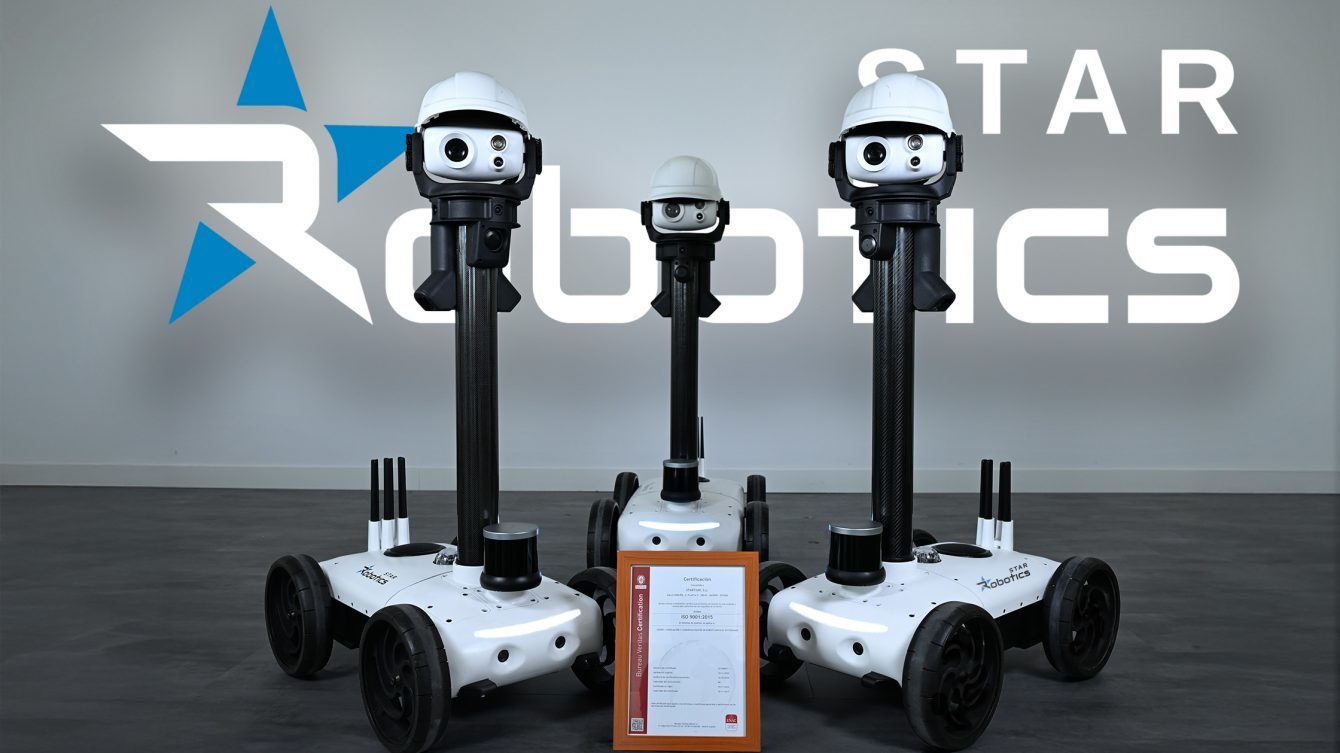"A robot managed to prevent a fire in a waste parking lot in Florida, United States," says Ángel Alejandre, CEO of Star Robotics, explaining the benefits of applying this technology in daily life. In this parking lot, dedicated to waste management, the android detected that batteries being crushed had overheated and were about to catch fire. "Through its thermal camera, the robot detected the problem, sent an alert, and the fire was avoided, saving a truck valued at half a million dollars," adds the leader of the company that created the Watchbot, a robot entirely manufactured in Madrid.
Founded in 2016, Star Robotics began developing prototypes in 2018 that would lead to the Watchbot. Today, their robots are used in about twenty companies worldwide, from Saudi Arabia to Singapore and Chile. Their effectiveness has been demonstrated in strategic sectors such as security and surveillance, as well as in critical facilities: nuclear power plants, thermal power plants, or water treatment plants. Star Robotics has also collaborated with the ONCE Foundation in assisting people with disabilities and with the National Radioactive Waste Company to position nuclear sensors and declassify material.
"We have managed to enter the security sector, which is usually quite conservative," explains Alejandre. "In this field, there is a shortage of labor, so these robots do not take away jobs, but rather add value.
The Watchbot android knows the terrain environment thanks to a map, establishes predefined routes, and if it detects an intrusion or technical failure in these key facilities, it immediately alerts the control center. If necessary, it can even be operated remotely. And how does it achieve this? Thanks to Artificial Intelligence. On one hand, it can detect people through a 360º camera, thus identifying intruders. On the other hand, it uses generative AI to alert about open doors, lights left on, or improperly placed fire extinguishers.
One of the advantages of this robot is its ability to adapt to the physical environment. "We create intelligent machines that integrate into the real world, something very complex," explains Alejandre. They can operate at any temperature, in any climate, and in any situation, preventing employees from facing any risks," he adds. Additionally, he highlights that Watchbots have an autonomy of eight hours, a time much longer than that of intelligent quadrupeds, whose battery barely lasts an hour. "Therefore, cost and autonomy are our main competitive advantages," he points out.
The Madrid-based company Star Robotics received an investment of 160,000 euros from the regional government and the Department of Digitalization within the framework of the European Program for Technological Specialization Networks (RETECH). Ignacio Azorín, Director General of Digital Strategy for the Community of Madrid, defends the importance of this support: "We want Madrid's SMEs to grow and adopt artificial intelligence to be more competitive globally. AI is the growth vector that must be exploited to increase optimization, development, and cost savings. And in this case, the best part is that it is a robot made in Madrid."
Another use of Watchbots is in shopping centers, where they handle night surveillance. Regarding possible intrusions on citizens' privacy rights, Alejandre confirms that their androids "respect data protection." In this sense, "images are stored for 30 days, in accordance with the Private Security Law, to serve as evidence in case of theft."
The CEO of Star Robotics is firm in addressing one of the most recurring debates: "Robots do not take jobs away from humans, but rather complement them. People perform tasks that add more value, such as interacting with delivery personnel or interpersonal communication, while robots handle the more monotonous or dangerous tasks."
